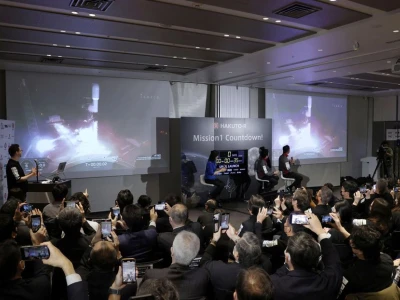
Virgin Orbit bankruptcy casts shadow over Japan's space dreams
Japan's medium-lift H3 rocket failed in March following an aborted launch the month before.
TOKYO, April 7 (Reuters) - The bankruptcy filing by Richard Branson's Virgin Orbit Holdings Inc has dealt a blow to Japan's hopes of building a domestic space industry, with plans for a Kyushu-based spaceport designed to attract tourism on hold for lack of funding.
Oita prefecture, home to Japan's largest number of hot springs, partnered with Virgin Orbit in 2020 to create its first Asian spaceport at Oita Airport using a Boeing 747 for horizontal rocket launches.
Founded by British billionaire Branson, Virgin Orbit had marketed itself as a military and intelligence satellite launch platform for the U.S. and its allies, including Japan, at a time when both Washington and Tokyo see China's rise as a space power as a concern.
The original aim was to launch small satellites from Oita as early as last year, but that never occurred, in another setback in Japan's attempt to become a player in the crowded market for commercial satellite launches after two recent rocket launch failures.
Two Japanese companies, ANA Holdings unit All Nippon Airways Trading Co and little-known Japanese satellite development start-up iQPS Inc emerged among the top six creditors when Virgin Orbit filed for Chapter 11 bankruptcy protection on Tuesday.
ANA, owed $1.65 million, had been a key partner for the Oita spaceport, entering a provisional deal with Virgin Orbit in 2021 for 20 flights of its LauncherOne rocket there. ANA said it was hopeful Virgin Orbit, which has said it is seeking a buyer, would be able to restructure and resume business.
Fukuoka-based iQPS had paid a $5.2 million deposit to launch its small, lightweight constellation satellites weighing under 100 kilograms (220 pounds), representing a major portion of the $17.2 million Series A funding it had raised in 2017.
"We were disappointed when we heard the announcement as we had hoped the situation would improve," iQPS said of the bankruptcy filing. "We pray that Virgin Orbit will resume their business for the development of the global space industry."
TOURISM HOPES
Oita prefecture had estimated the spaceport, similar to Virgin Orbit's Cornwall, England facility, would produce economic benefits worth about 10.2 billion yen ($77.4 million) in the region over the five years from the initial launch.
With expectations of about 240,000 tourists visiting the site, local businesses created alien-related souvenirs, from alien passports to "E.T." bicycles.
Locals are still hopeful that a spaceport will eventually emerge. "It is possible that some other company will buy Virgin Orbit. Also, there are other companies and competitors besides Virgin Orbit that are considering horizontal launches, so Oita still has many options to reenter into a contract with them," said Kunio Ikari, an economics lecturer at Oita University.
Oita prefecture said that its efforts to attract a spaceport remains unchanged, while declining to comment on Virgin Orbit or the current status of the project. Oita Airport also declined to comment.
While Japan has big ambitions for space – Tokyo has said it hopes to put one of its astronauts on the lunar surface in the latter half of the 2020s – it has also had some other recent setbacks.
Japan's medium-lift H3 rocket failed in March following an aborted launch the month before, in a blow to its efforts to cut the cost of accessing space and compete against Elon Musk's SpaceX.
The Japanese space agency's solid-fuel Epsilon rocket, which was set to carry iQPS' small satellites, also failed after launch in October.
After the unsuccessful launches, some experts are urging Japan to shift the focus of its space industry.
"Japan is concentrating too much on launches," said Jun Nagashima, cyber and space expert and adviser at Nakasone Peace Institute. "With SpaceX coming out with affordable rockets that can be used repeatedly, it would be better for Japan to compete in different activities and areas in space."




